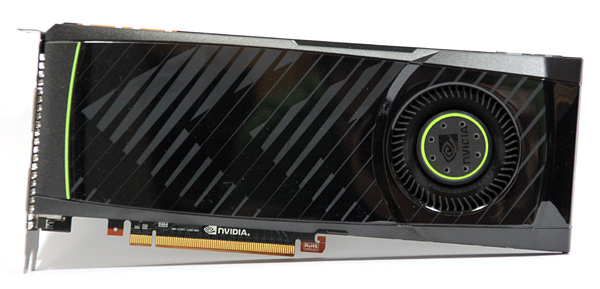Index

For the GTX 580, Nvidia decided to use the new vapour chamber cooling. This is not much of a surprise as the GTX 480’s cooler has taken enough flak for Nvidia to realize that they have to raise their game in this field.
However, vapour-chamber technology is anything but a new technology, and as far as we recall it was Sapphire who first used it to cool GPUs. Thanks to this tech, Nvidia can get rid of the heatpipe solutions such as the one on GTX 480 (picture below). As you probably already know, the GTX 480 is a pretty hot and loud card, but the GTX 580 is a different beast. It is, in fact, surprisingly quiet for a high-end card.

The GTX 580’s PCB design hasn’t changed much from the GTX 480, but there have been improvements in power regulation circuitry (picture below). Nvidia added Advanced Power Management, a feature which monitors consumption and performs power capping – all to protect the graphics cards from excessive power draw.

The GTX 480 has a hole in the PCB below the fan, so that the fan could draw fresh air in scenarios where another card in SLI mode blocks the fan. The GTX 580 has no holes in the PCB or the cooler’s metal block.

The memory modules are in contact with the cooler’s metal block whereas the GPU is in direct contact with the vapour-chamber (picture below).
One of the positive aspects of vapour chamber technology is that it doesn’t take up much space, while at the same time it renders heatpipe solutions obsolete.
The GTX 580’s vapour chamber is the largest one we’ve seen so far. The heatsink is on top of the chamber, which allows for quick heat transfer from the GPU and further dissipation via the heatsink fins.

The GF110 GPU takes up the same amount of space as the GTX 480’s GF100.
Since the cards’ PCBs are pretty similar, we thought it would be nice to try whether GTX 580’s cooler will fit onto a GTX 480. Unfortunately, a few capacitors in the power regulation area wouldn’t allow for our GTX 480 makeover.
GTX 580 comes with two dual-link DVI connectors and one mini-HDMI.

The card is powered via one 6-pin and one 8-pin power connector. The picture below compares the GTX 480 and GTX 580.



